Verboten! (1959)
“I will show you there is a difference between a Nazi and a German!”
|
Synopsis: |
|
Genres, Themes, Actors, and Directors:
Review: Verboten! is notable for preceding Judgment at Nuremberg (1961) in its frank depiction of the atrocities of concentration camps, with ample use made of actual footage — and if Fuller is typically blunt in his handling of dramatic scenes, it’s in service of a story worth telling. This one is a must-see for Fuller fans, and recommended for others. Notable Performances, Qualities, and Moments: Must See? Links: |
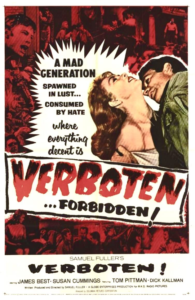
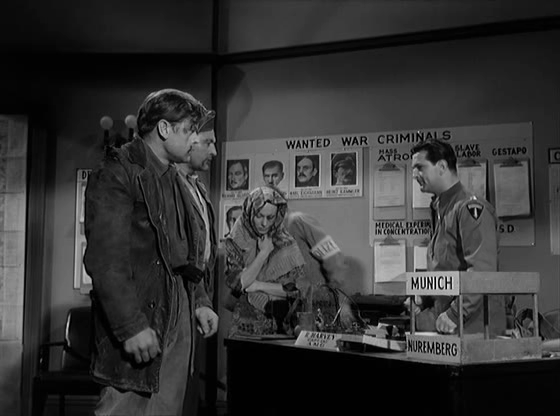
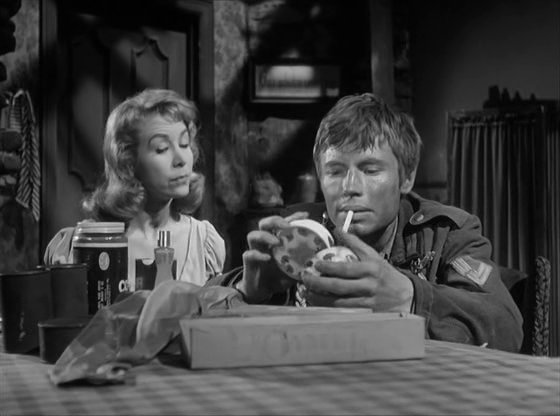
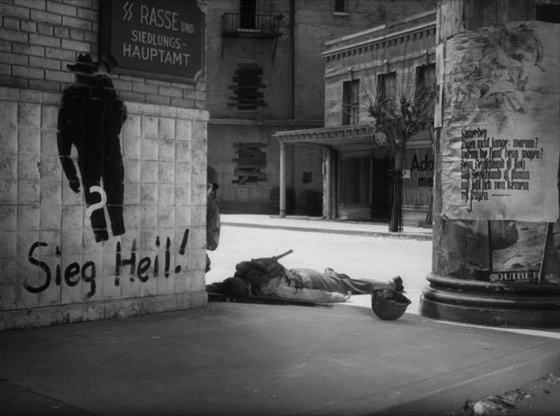
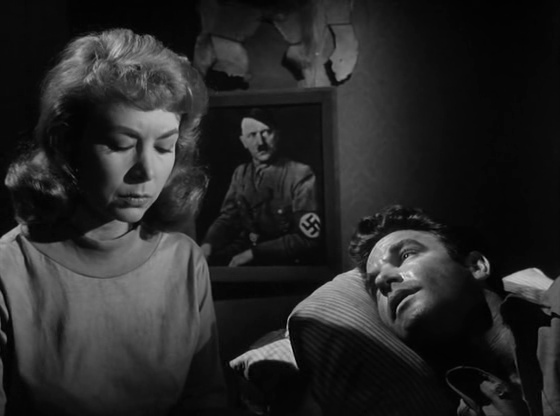
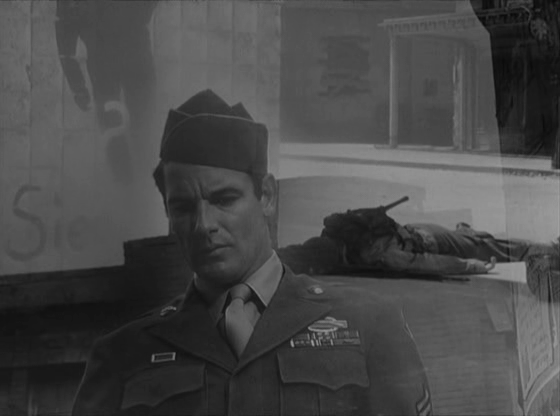
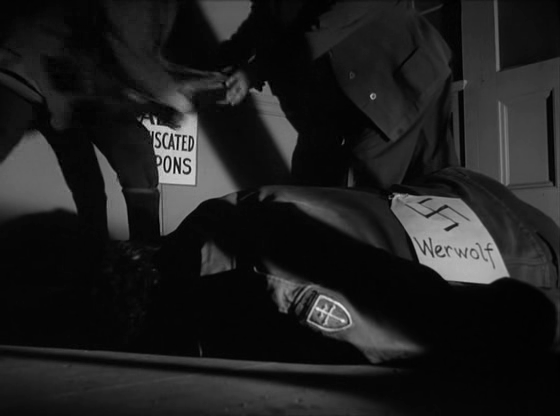
One thought on “Verboten! (1959)”
Must-see, as a potent Fuller film that film fanatics should know.
(Rewatch.) Very effective, uncompromising post-war drama that has a unique angle – one that is likely to be unfamiliar in its possibilities even to those who have seen a fair amount of WWII films.
It’s hard-hitting, with powerful dialogue and brilliant use of its limited budget (as well as the extended use of disturbing but valuable archival footage). It’s also of note for convincing performances from actors who won’t be thought of as ‘A-list’.
A memorable experience (though personally I could have done without the opening ‘love theme’ sung by Paul Anka).